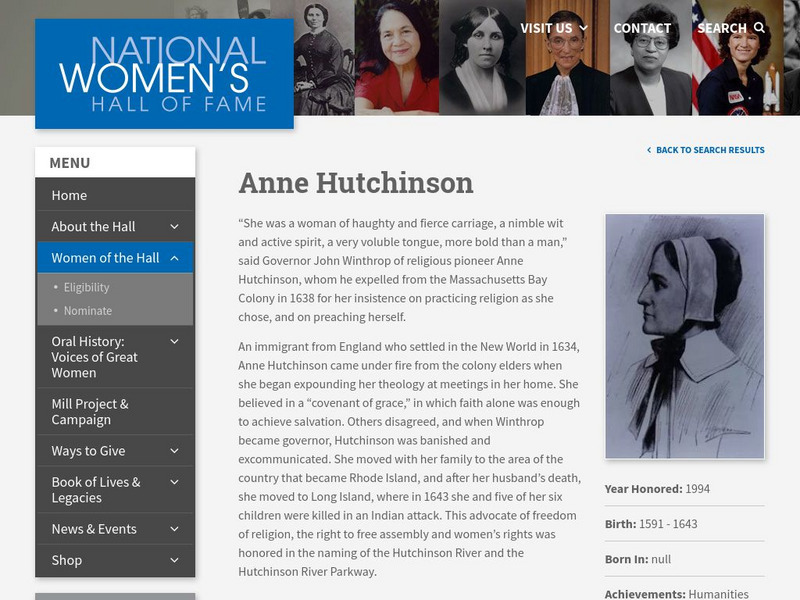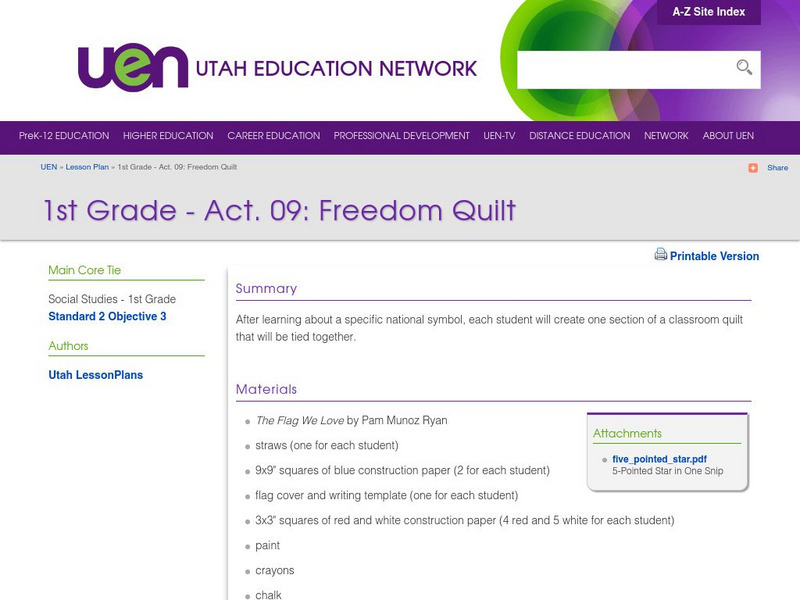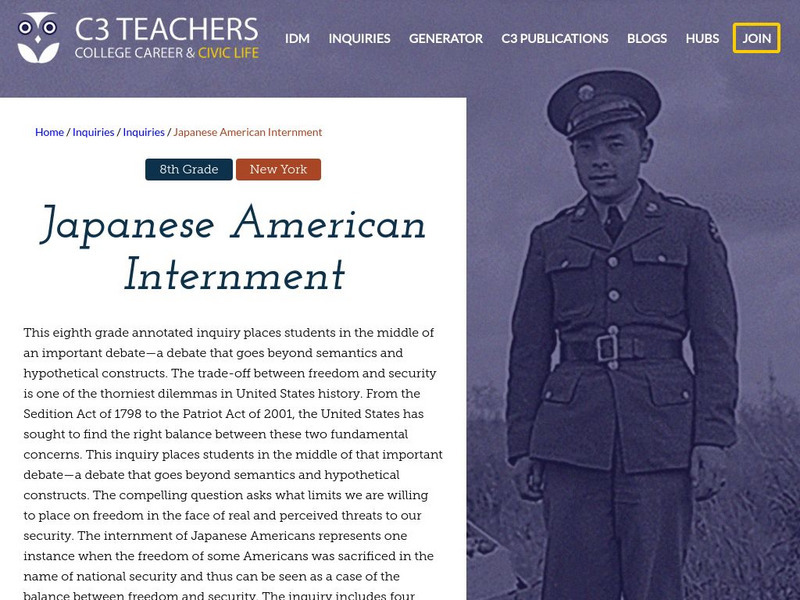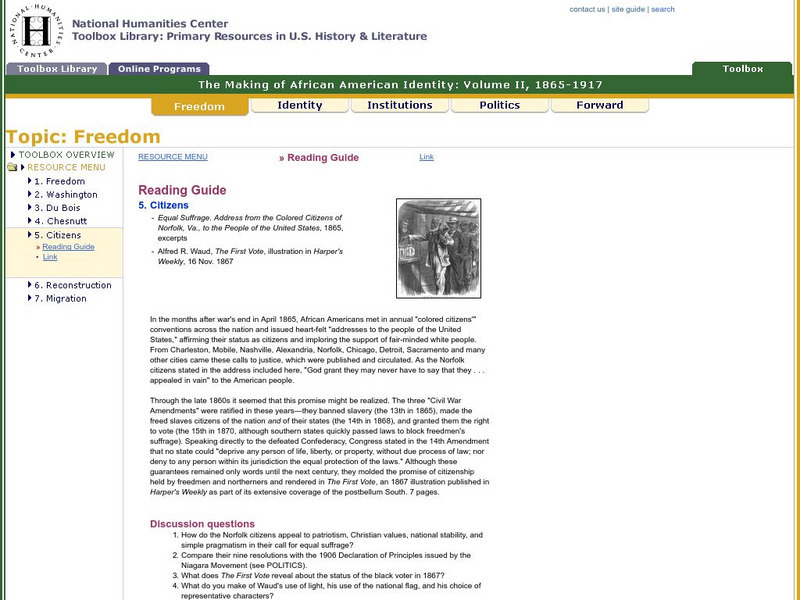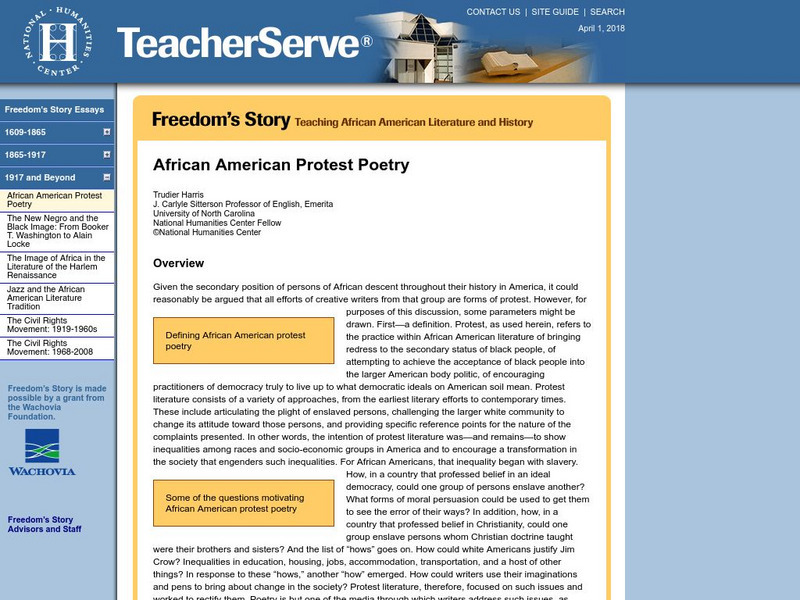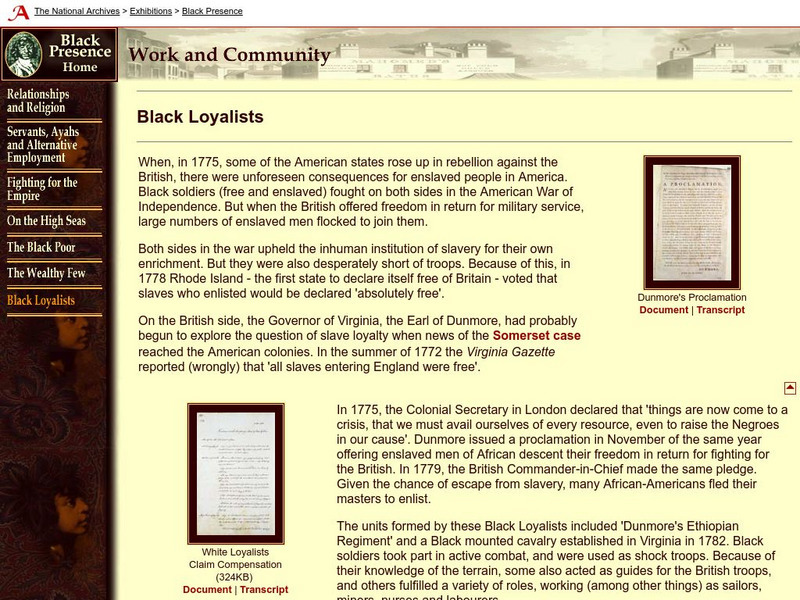Smithsonian Institution
National Museum of American History: Separate Is Not Equal: Jim Crow Laws
Find Jim Crow laws, see signs, and read restrictive covenants that restricted freedom of movement, housing, and use of public facilities by African Americans in the late 19th and 20 centuries.
National Humanities Center
National Humanities Center: Teacher Serve: Freedom's Story: The Civil Rights Movement: 1968 2008
An excellent essay from the National Humanities Center that explores the civil rights movement after the groundbreaking legislation in the 1960s. It looks at how the civil rights movement has transitioned in the last part of the 20th and...
National Women's Hall of Fame
National Women's Hall of Fame: Anne Hutchinson
The National Women's Hall of Fame honors Anne Hutchinson for her early advocation for religious freedom in the Massachusetts Bay Colony.
Other
Article 19: Promoting Freedom of Expression
Discusses right to information and freedom of expression issues. Bright, colorful, nicely designed with many resources.
Association of Religion Data Archives
Association of Religion Data Archives: National Profiles: Religious Data
A huge collection of religious data sorted by countries around the world. Includes maps and data related to religious freedom, the religions practiced by citizens and more. You can search by country or region.
Utah Education Network
Uen: Lesson Plan: Freedom Quilt
Lesson that reinforces the state and national symbols students have learned. Students draw pictures of state and United States symbols and combine them to form a quilt.
National Humanities Center
National Humanities Center: Teacher Serve: Freedom's Story: Pigmentocracy
Trudier Harris, Professor of English at the University of North Carolina, takes a look at pigmentocracy, the distinctions that people of African descent in America make in their various skin tones. She suggests that there is a...
US National Archives
National Archives: Oh Freedom! Sought Under the Fugitive Slave Act
What would your life be like if you had to always be running from people who wanted to capture you and make you their slave? The following documents tell the story of William and Ellen Craft who fled from slavery in 1848. View the...
National Humanities Center
National Humanities Center: Toolbox Library: Freedom, Making of African American Identity: V. 1, 1500 1865
Twenty nine primary sources-historical documents, literary texts, and visual images-that explore the qualities and conditions of African lives on the west coast before and during the European slave trade.
C3 Teachers
C3 Teachers: Inquiries: Japanese American Internment
A comprehensive learning module on the WWII internment of Japanese Americans that includes three supporting questions accompanied by formative tasks and primary source materials, followed by a summative performance task. Students learn...
National Humanities Center
National Humanities Center: Toolbox Library: Citizens: African American Identity: 1865 1917
Discusses the efforts of African Americans to be recognized as equal citizens after the Civil War, and the 13th, 14th, and 15th Amendments. Includes links to supplemental information.
US National Archives
Nara: The Emancipation Proclamation
The U.S. National Archives and Records Administration (NARA) provides an elaborate overview of Abraham Lincoln's Emancipation Proclamation. Content includes detailed background information behind the document, photos of the original...
National Humanities Center
National Humanities Center: Teacher Serve: The Varieties of Slave Labor
Daniel C. Littlefield, Professor of History at University of South Carolina, explores how plantation or slave labor differed according to location and period.
National Humanities Center
National Humanities Center: Teacher Serve: How to Read a Slave Narrative
This essay, written by English professor William L. Andrews, explores slave narratives and their influence in American literature in the late nineteenth century up to modern times.
National Humanities Center
National Humanities Center: Teacher Serve: Racial Uplift Ideology in the Era of "The Negro Problem"
History professor Kevin Gaines explores the idea that educated blacks are responsible for the welfare of the majority of the race and how the uplift ideology undermined collective social advancement.
National Humanities Center
National Humanities Center: Teacher Serve: Segregation
Steven Lawson, Professor of History at Rutgers, explores how racial segreagation changed from before the Civil War up to the 1950s and the differences in segregation between the North and the South. Students should understand the legacy...
National Humanities Center
National Humanities Center: Teacher Serve: The Trickster in African American Literature
Trudier Harris, Professor of English at the University of North Carolina at Chapel Hill, explains the role of tricksters in African American literature.
National Humanities Center
National Humanities Center: Teacher Serve: African American Protest Poetry
Learn about African American protest poetry and what was motivating it. This article takes a look at protest poetry during slavery, during the period of segregation and Jim Crow, and after political obstacles to equality were removed....
National Archives (UK)
The National Archives: Black Loyalists
Both free and enslaved black soldiers fought on both sides fo the Revolutionary War. Learn about the Black Loyalists of Canada, and how some slaves earned their freedom through military service. Includes primary source documents.
Siteseen
Siteseen: American Historama: Buying Freedom From Slavery
Interesting discussion on the methods used by slaves to acquire the money to help them buy their freedom.
Other
National Underground Railroad Freedom Center: Human Trafficking Report [Pdf]
Review this shocking report regarding human trafficking in the Greater Cincinnati area from information gathered between 2008-2009.
Smithsonian Institution
National Museum of American History: The Price of Freedom: Americans at War
View comprehensive sets of artifacts that tell the story of America's wartime past and present. Artifacts from every major American military conflict, beginning with the American Revolution, can be closely examined. Full curatorial notes...
US National Archives
Nara: Charters of Freedom: Constitution of the United States
The complete text of the U.S. Constitution as adopted by the U.S. Congress on September 17, 1787, with information about changes made.
US National Archives
Nara: Charters of Freedom: The Bill of Rights
This site contains a complete transcription of The Bill of Rights, along with zoomable graphics of the original handwritten text. It also includes information about the historical context of the document, links to more constitutional...


